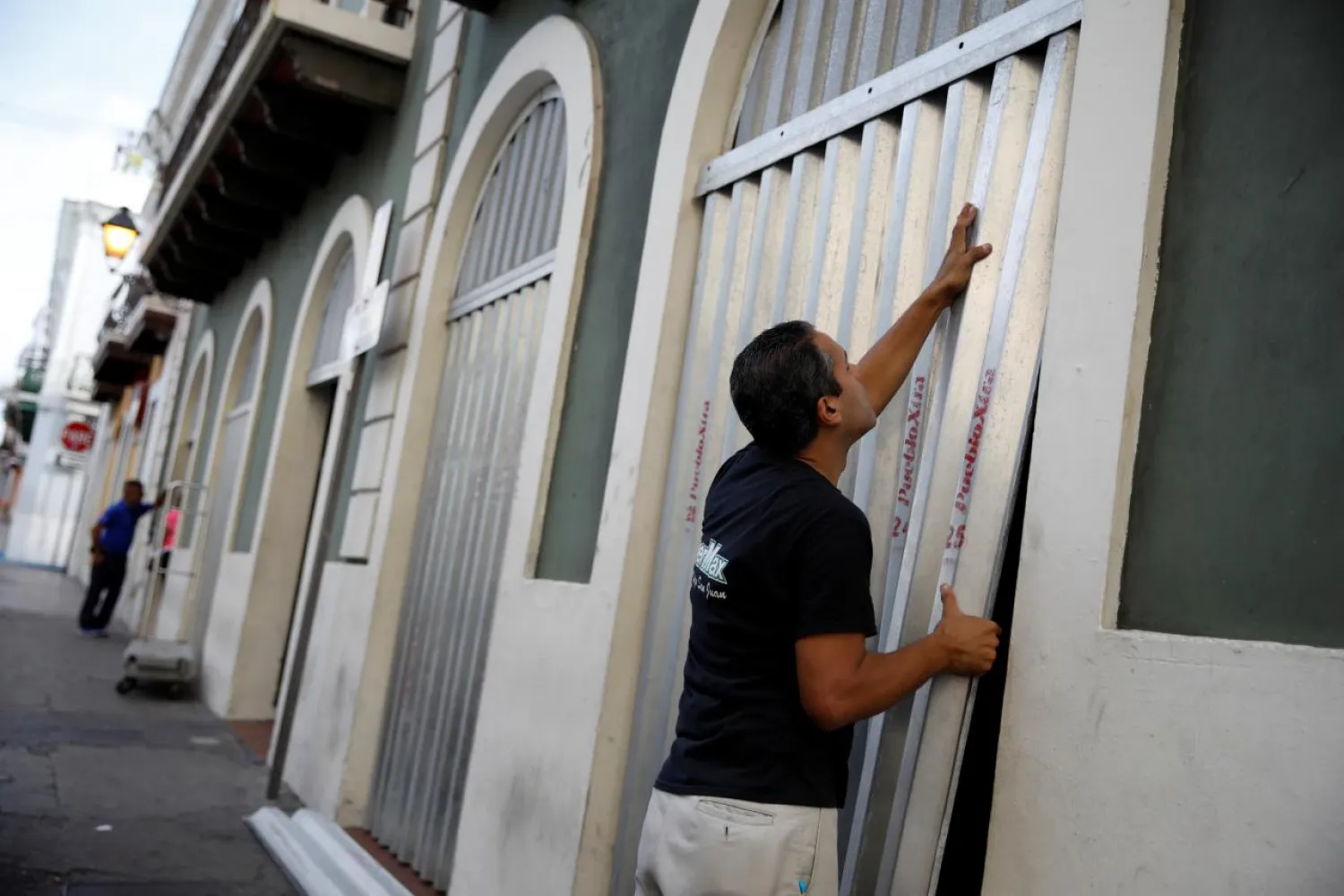Maria, one of the strongest hurricanes to ever hit Puerto Rico, pummeled the island Wednesday after leaving at least two people dead in the French territory of Guadeloupe and causing major damage in Dominica.
Maria made landfall early Wednesday in the southeast coastal town of Yabucoa as a Category 4 storm with winds of 155 mph (250 kph) winds, and it was expected to punish the island with life-threatening winds for 12 to 24 hours, forecasters said.
Zinc roofs were already flying and windows were breaking as the storm approached before dawn, with nearly 900,000 people without power and one tree falling on an ambulance.
"The wind sounds like a woman screaming at the top of her lungs!" photographer and storm chaser Mike Theiss posted on Twitter early Wednesday.
Maria ties for the eighth strongest storm in Atlantic history, when measured by wind speed. Coming in second is this year's Irma, which had 185 mph (300 kph) winds and killed 38 people in the Caribbean and another 36 in the US earlier this month.
Maria killed one person by a falling tree while another died on the seafront in the French Caribbean island of Guadeloupe.
Two people aboard a boat were also reported missing off La Desirade island, just east of Guadeloupe, officials said.
About 40 percent of the island — 80,000 homes — were without power and flooding was reported in several communities.
In Dominica, Prime Minister Roosevelt Skerrit sent out a series of dramatic posts on his Facebook page, including that his own roof had blown away.
"The winds are merciless! We shall survive by the grace of God," Skerrit wrote before communications went down.
The storm knocked out communications for the entire island, leaving anyone outside Dominica struggling to determine the extent of damage, though it was clearly widespread. "The situation is really grave," Consul General Barbara Dailey said in a telephone interview from New York.
She said she lost contact with the island about 4 a.m. At that point, officials had learned that 70 percent of homes had lost their roofs, including her own.









